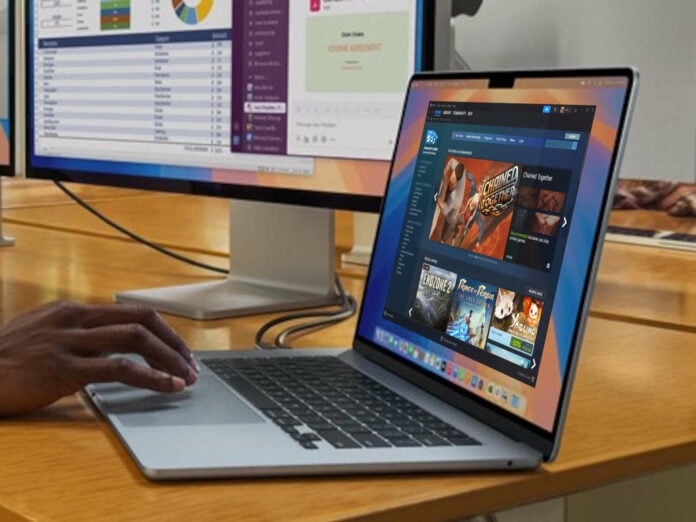Impressive and powerful as Apple silicon is, their ARM architecture ultimately limits their reach and capabilities due to compatibility. Initiatives like Rosetta 2 have helped plug the gap, but now the Mac manufacturer has announced it is calling time on its translation layer. Following this news, developers are scrambling to produce native applications, with Steam emerging as an immediate and potentially earth-shattering addition.
Valve published a new version of Steam compatible with Apple Silicon as part of its June 12 client beta. MacOS users make up a mere 1.85% of the platform’s population, while Linux enjoys a large 2.69% share and Windows makes up the majority at 95.45%. However, appetites to abandon Microsoft’s operating system are growing and Mac devices could be instrumental in a paradigm shift.
It’s no secret that Valve is working to provide its own alternative to Windows through SteamOS, which is now available on third-party handhelds as well as its own Steam Deck. The company’s goal isn’t to oust Microsoft’s operating system but to provide an alternative. MacOS does just that and the addition of native support for Apple Silicon will undoubtedly improve the gaming experience for many and likely attract new users.
After all, Apple has shown a growing interest in expanding its support for gaming. Back in 2022, Apple debuted its Metal 3 API which includes support for MetalFX upscaling, a potential rival to DLSS, FSR, and XeSS. Adoption has proven slow, but major releases including Baldur’s Gate III and Resident Evil Village demonstrate potential.
As Windows 10 rapidly approaches end-of-life status, many will be considering whether to continue with Microsoft’s offerings or make the jump to an alternative. Native support from Steam for Apple silicon may seem small for the moment, but this could be the straw that breaks the camel’s back for many.

